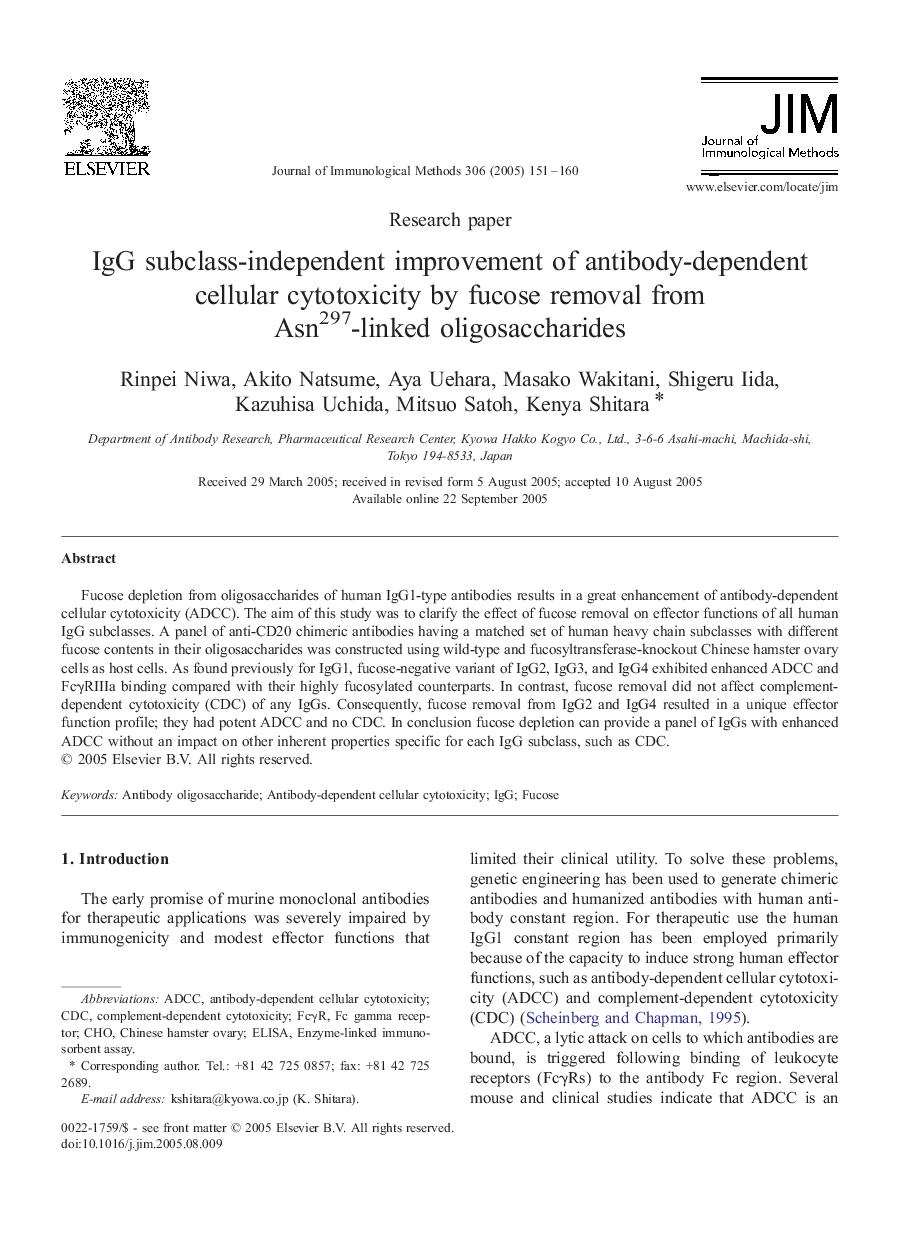| Article ID | Journal | Published Year | Pages | File Type |
|---|---|---|---|---|
| 9902216 | Journal of Immunological Methods | 2005 | 10 Pages |
Abstract
Fucose depletion from oligosaccharides of human IgG1-type antibodies results in a great enhancement of antibody-dependent cellular cytotoxicity (ADCC). The aim of this study was to clarify the effect of fucose removal on effector functions of all human IgG subclasses. A panel of anti-CD20 chimeric antibodies having a matched set of human heavy chain subclasses with different fucose contents in their oligosaccharides was constructed using wild-type and fucosyltransferase-knockout Chinese hamster ovary cells as host cells. As found previously for IgG1, fucose-negative variant of IgG2, IgG3, and IgG4 exhibited enhanced ADCC and FcγRIIIa binding compared with their highly fucosylated counterparts. In contrast, fucose removal did not affect complement-dependent cytotoxicity (CDC) of any IgGs. Consequently, fucose removal from IgG2 and IgG4 resulted in a unique effector function profile; they had potent ADCC and no CDC. In conclusion fucose depletion can provide a panel of IgGs with enhanced ADCC without an impact on other inherent properties specific for each IgG subclass, such as CDC.
Keywords
Related Topics
Life Sciences
Biochemistry, Genetics and Molecular Biology
Biotechnology
Authors
Rinpei Niwa, Akito Natsume, Aya Uehara, Masako Wakitani, Shigeru Iida, Kazuhisa Uchida, Mitsuo Satoh, Kenya Shitara,
